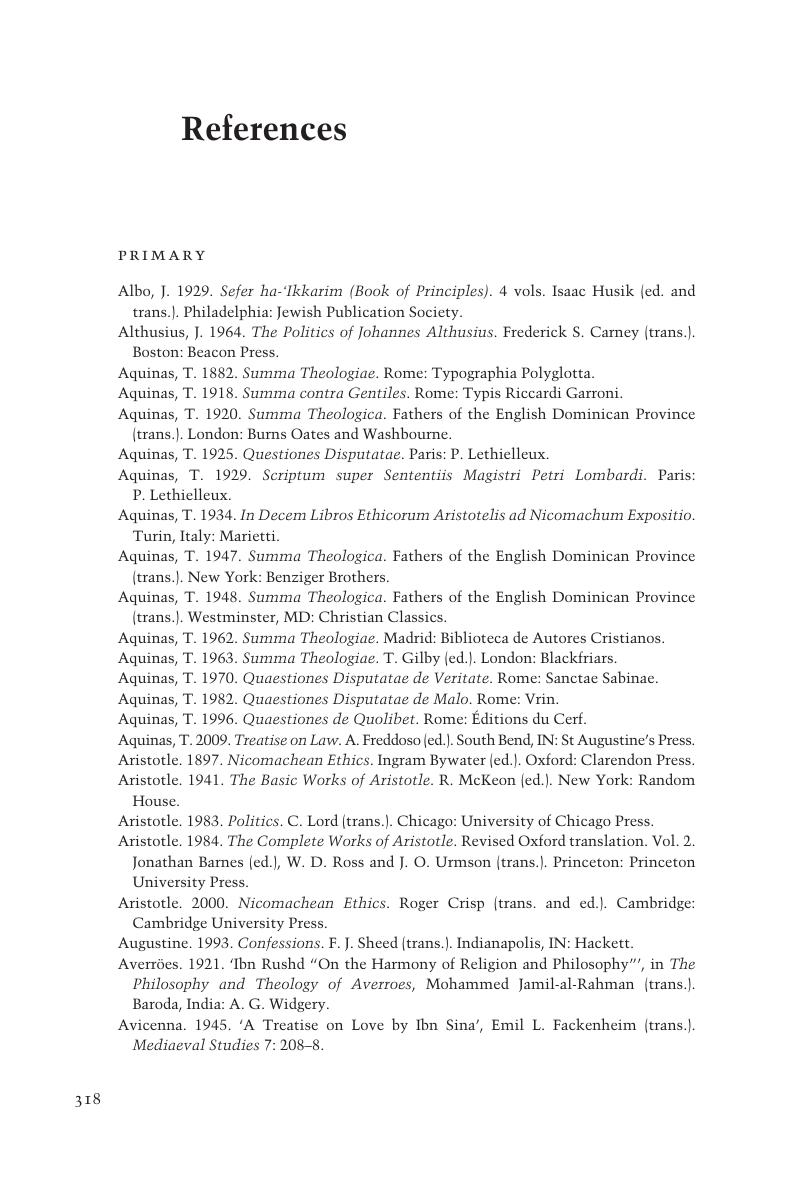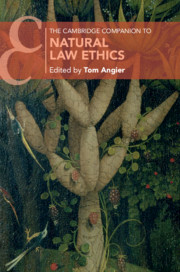Book contents
- The Cambridge Companion to Natural Law Ethics
- Other Volumes in the Series of Cambridge Companions
- The Cambridge Companion to Natural Law Ethics
- Copyright page
- Contents
- Contributors
- Introduction
- Part I The History of Natural Law Ethics
- Part II The Revival of Natural Law Ethics
- Part III Natural Law Ethics and Religion
- Part IV Applied Natural Law Ethics
- Part V Natural Law Ethics
- References
- Index
- Other Volumes in the Series of Cambridge Companions (continued from page ii)
- References
References
Published online by Cambridge University Press: 21 October 2019
- The Cambridge Companion to Natural Law Ethics
- Other Volumes in the Series of Cambridge Companions
- The Cambridge Companion to Natural Law Ethics
- Copyright page
- Contents
- Contributors
- Introduction
- Part I The History of Natural Law Ethics
- Part II The Revival of Natural Law Ethics
- Part III Natural Law Ethics and Religion
- Part IV Applied Natural Law Ethics
- Part V Natural Law Ethics
- References
- Index
- Other Volumes in the Series of Cambridge Companions (continued from page ii)
- References
Summary

- Type
- Chapter
- Information
- The Cambridge Companion to Natural Law Ethics , pp. 318 - 341Publisher: Cambridge University PressPrint publication year: 2019



